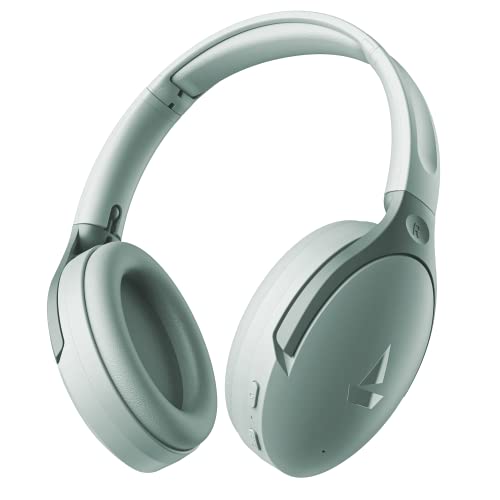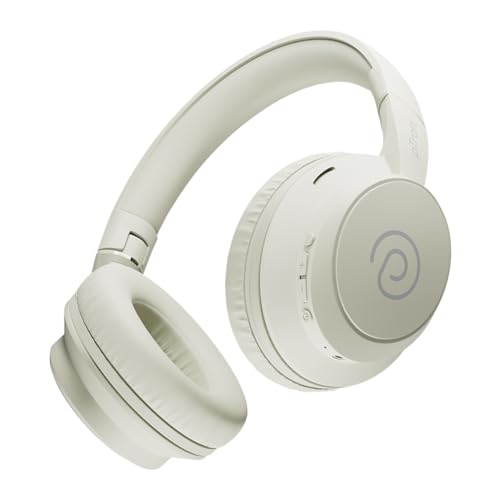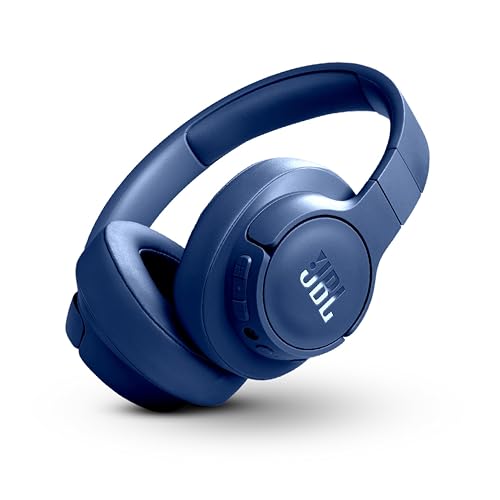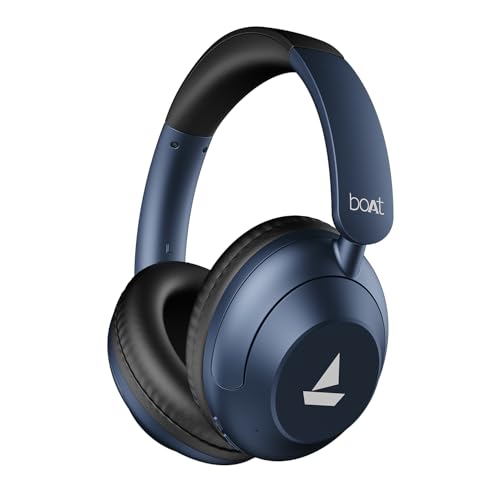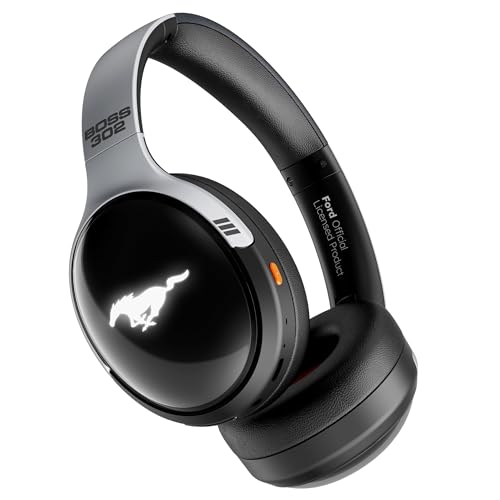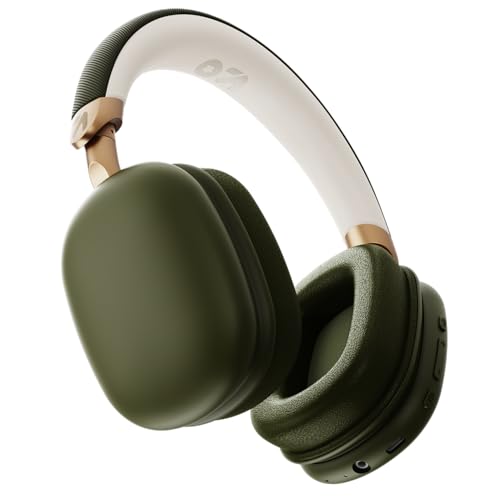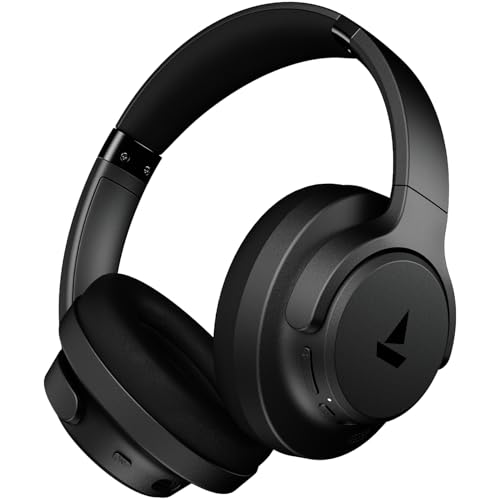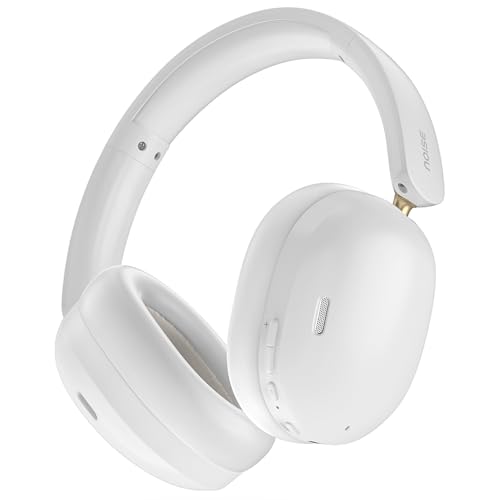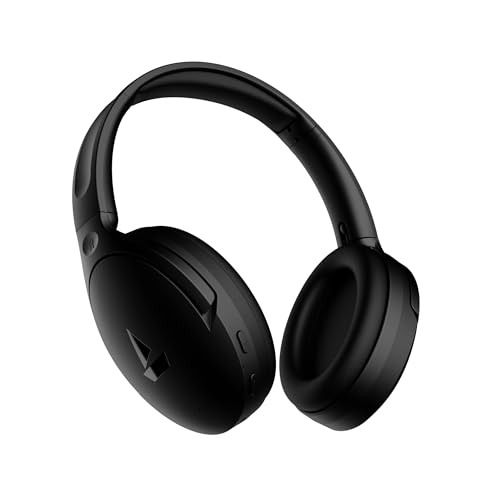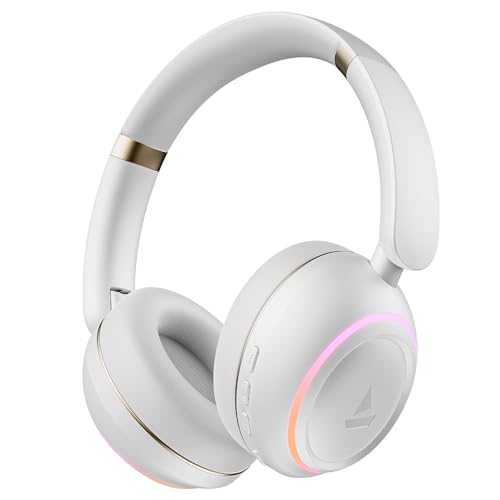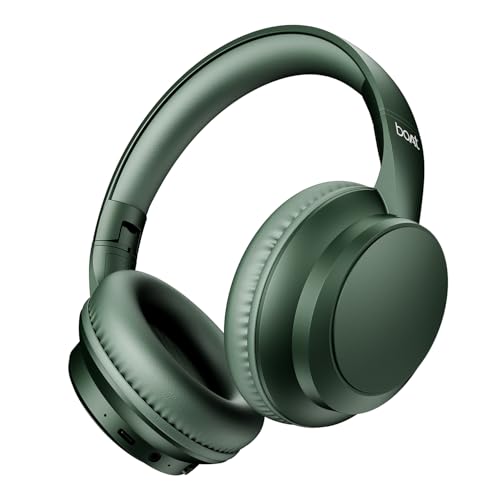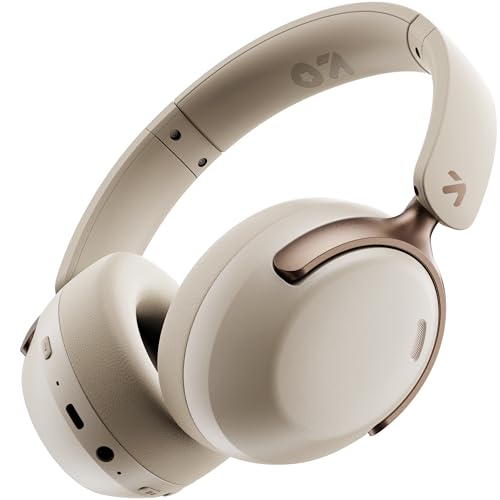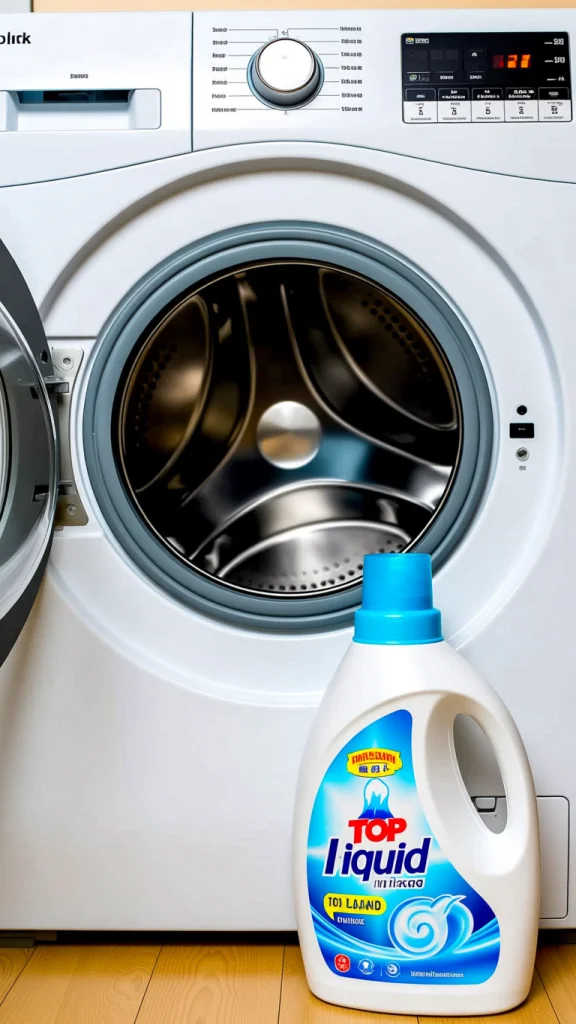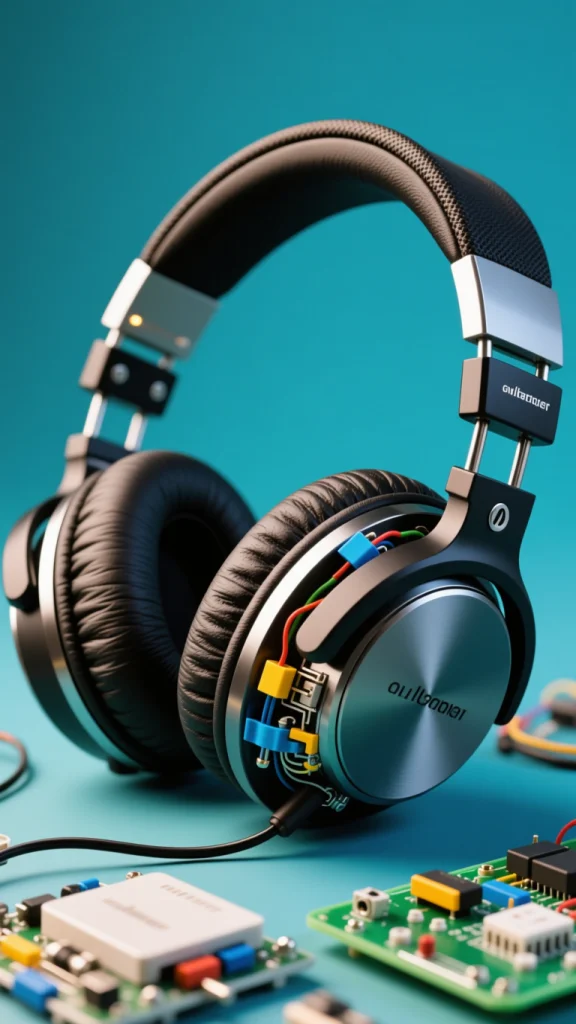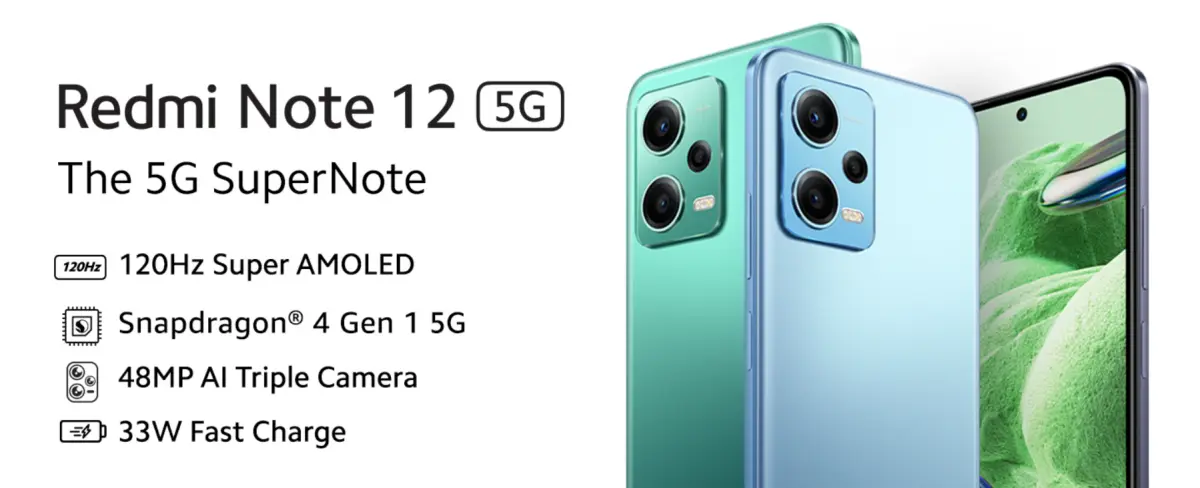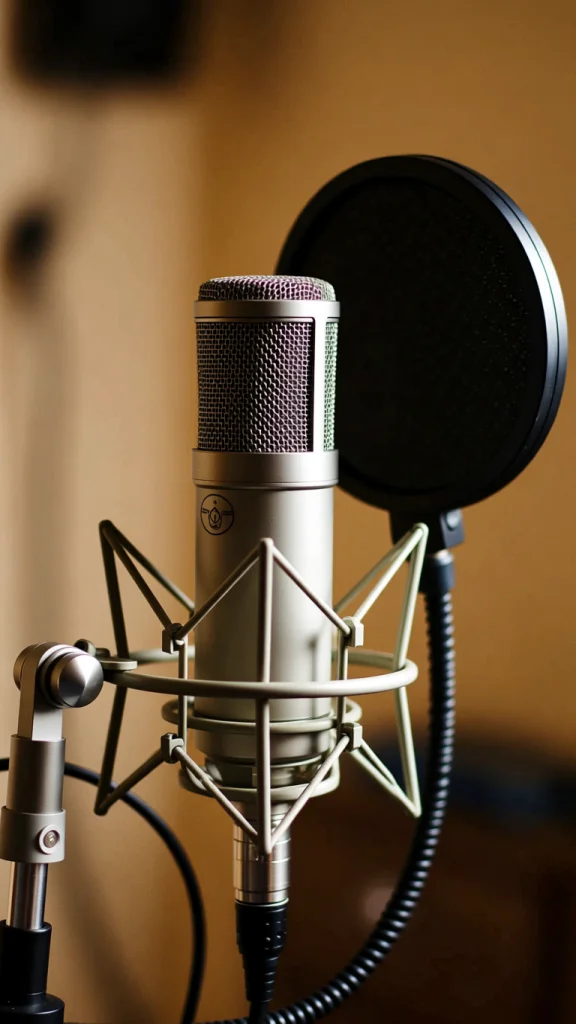Headphones have become an integral part of our modern lives, allowing us to enjoy music, make calls, play games, and consume media conveniently and privately. But beyond convenience, headphones provide an essential avenue for high-quality personal audio experiences. Understanding why audio quality matters helps us appreciate the importance of headphones.
Key Reasons Quality Headphones Are Important
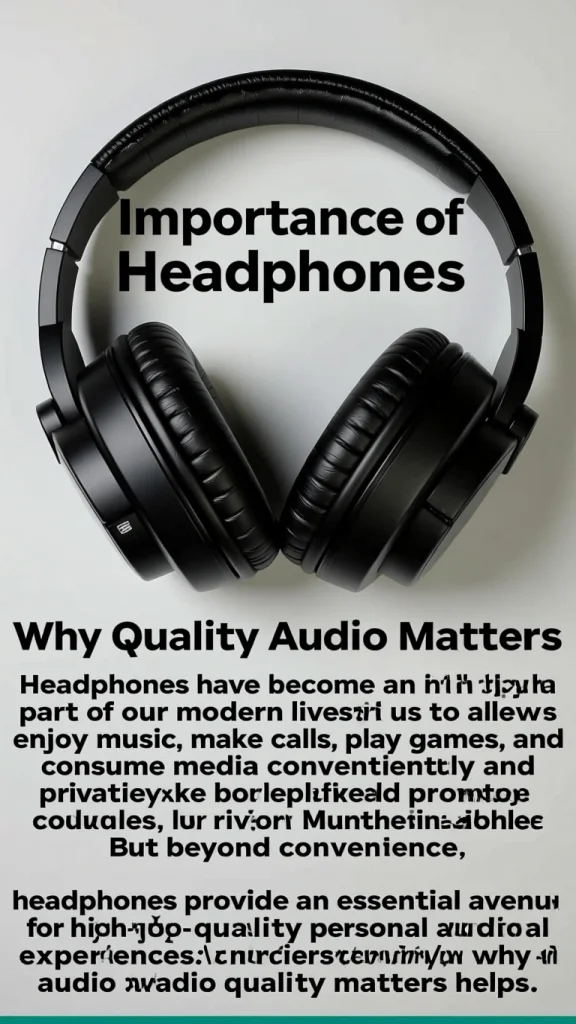
Immersive Listening Experiences
Great headphones with wide frequency response and dynamic drivers allow you to hear every detail and nuance in recordings. This transforms listening into an immersive experience that transports you into the music. Quality matters more than ever as streaming services offer lossless high-fidelity audio.
Hear Audio As Intended
From studios to living rooms, audio engineers mix and master music on high-end reference headphones to hear the sound exactly as intended. Quality headphones give consumers that same experience. Rather than altered, colored, or distorted sound, you hear intricate details the way artists want you to.
Evaluate Audio Accurately
Serious audiophiles, sound engineers, and music professionals rely on neutral, accurate headphones to make mix, mastering, and sound design judgments. Critical listening on high-performing headphones provides reliable audio evaluation.
Appreciate New Layers and Nuances
Great headphones reveal intricacies like subtle instrumental resonances, vocal harmonies, and spatial cues that get lost on inferior equipment. Appreciating these extra-musical layers and nuances brings more joy.
Comfort for Extended Wearing
Listening to long playlists, podcasts, or audiobooks is most comfortable with lightweight headphones that have plush earpads and adjustable components that don’t cause fatigue over time.
Noise Isolation for Immersion
By creating a seal around your ears and reducing external noise, good headphones allow you to immerse fully into your audio. Noise isolation makes headphones ideal for travel, commuting, or anywhere with distracting environments.
Customizable Experience
High-end audiophile headphones paired with a headphone amp and EQ settings allow customizing the listening experience to your taste with enhanced bass, livelier treble, or a boosted soundstage.
Preserve Your Hearing Health
Unlike speakers, headphones allow you to listen at safer volumes while still hearing detail and dynamics. Protecting your ears’ health is vital for long-term listening.
Read More- Best Gaming Headphones Under 2500₹ in India
Key Types of Headphones
There are various headphone designs, each with their own sound profiles and use cases:
| Headphone Type | Sound Characteristics | Best Uses |
|---|---|---|
| Over-Ear | Expansive, immersive soundstage. Comfortable fit for long listening. Good noise isolation. Open-back models provide a natural sound. | Home listening, mixing/mastering, audiophile use. |
| On-Ear | Portable size while retaining good sound. Less sound leakage than earbuds. | Commuting, office use, compact mobile listening. |
| Earbuds | Convenient pocketable size. Some high-end models offer impressive sound. | Active use, exercising, portable devices. |
| Wireless | Convenience of no wires. Short latency models ideal for videos/gaming. | Home use, commuting, versatility. |
| Convenience of no wires. Short latency models are ideal for videos/gaming. | Actively cancel ambient noise to heighten immersion. | Travel, noisy environments, concentration. |
Key Headphone Specifications
- Driver Type – The driver’s design determines the sound profile. Dynamic drivers are the most common but balanced armature and planar magnetic designs have benefits. Larger drivers typically equate to bigger sounds.
- Frequency Response – A wider frequency response with lower and upper limits means the headphones reproduce deeper bass and higher treble. 20Hz to 20kHz is ideal.
- Impedance – Impedance ratings affect volume from amplifiers/sources. Higher impedance models may need more power to reach sufficient loudness.
- Sensitivity – How efficient the headphones are at converting electrical input signals into sound pressure levels. Higher sensitivity means louder output from the same source.
- Noise Isolation – Prevents outside noise interfering/leaking. Important for immersion and avoiding disturbing others nearby.
Read More- Best Gaming Headphones Under 2000
- Hybrid ANC- Say adios to the chaos with Active Noise Cancellation feature and elevate the vibe to a whole new level of pleasure with Rockerz 551ANC, delivering up to 35dB Hybrid ANC.
- Playback-Stay connected to your playlist for mammoth durations, every day with up to 70 hours of playtime in ANC mode and up to 100 hours in normal playback mode.
- ASAP Charge-This headphone comes equipped with our ASAP Charge technology that helps it garner 10 hours of playtime in just 10 min of charge.
- Drivers-Exhilarate your senses with crystal clear sound reproduction via 40mm drivers, delivering you the boAt immersive experience.
- Ambient Mode-It comes equipped with Ambient Sound Mode that lets the listener stay aware of the sounds in the ambience even while the playback is on.
- Studio Evo comes with an Ergonomic Design & Soft Ear cups, our Over-Ear Bluetooth Headphones Ensure All-day Listening Comfort | Adjustable Head beam to Position the Earcups Exactly Over Your Ears
- 70 Hours of Playtime on a Single Full Charge | 40mm Dynamic Drivers for Rich & Powerful Stereo Sound Quality | Built-in HD Mic for Handsfree Calls | Just 2 hours charge Time via Type-C Charging
- 4 Low-Latency EQ to Enjoy Mobile Gaming/Movies/Music Seamlessly | Strong Bluetooth V5.3 Wireless Connectivity with Quick Pairing | Dual Device Pairing – Easily Connect & Switch between 2 devices
- Play Music Wirelessly thru Bluetooth & Wired thru Aux-in Port | Easy Access to Devices Voice Assistant | IPX5 Waterproof, Use these Wireless Headphones Carefree without worrying about Sweat & Spills
- Foldable Design for Easy Storage | Easy Controls – Manage Music & Calls with Multi-functional Buttons | 1-Year Manufacturer Warranty from the Date of Purchase on Manufacturing Defects Only
What to Look for in Quality Headphones
Great headphones typically share features like:
- Accurate, balanced sound across bass, mids, and treble
- Wide, extended frequency response reaching deep sub-bass
- High sensitivity and low impedance for optimal loudness
- Good noise isolation to block unwanted ambient noise
- Durable, high-quality materials for the headband and earcups
- Replaceable components like earpads to extend lifespan
- Comfort-focused design for long listening sessions
History and Evolution of Headphones
Headphone technology has progressed enormously since its early incarnations:
- 1910s – Early headphone prototypes developed like Thermophones based on thermal conduction.
- 1930s – First dynamic driver headphones created by Beyerdynamic. Electrostatic headphones also emerge.
- 1950s – First commercial stereo headphones released by John C. Koss.
- 1968 – Planar magnetic headphones were introduced by Yamaha.
- 1979 – Sony unveils the Walkman portable cassette player and lightweight MDR headphones.
- 1991 – The first modern noise-cancelling headphones were created by Bose.
- 2001 – Apple introduces the original iPod with signature white earbuds.
- 2007 – Dr. Dre and Monster released the Beats by Dr. Dre headphone range finding huge mainstream success.
- 2015 – Headphone noise cancellation and wireless technology mature with models like Sony WH-1000XM2.
- 2020s – High-resolution streaming spurs new interest in audiophile headphones.
Advancements will continue extending headphone sound quality and convenience. But their core role of delivering exceptional personal audio endures.
Read More- Best Gaming Headphones Under 1500 In India
Conclusion
From audiophile bliss to private commutes, headphones offer an essential way to experience sound how we want.
As music fidelity and accessibility reach new heights, quality headphones help us reap the benefits through immersive listening.
Evaluating headphones based on comfort, noise isolation, frequency range, sensitivity, and accurate reproduction ensures finding the right pair to hear audio as intended.
For private worlds and wonderful sound, headphones deliver an essential audio escape.
FAQs About Headphones
What are the main types of headphones?
The main types are over-ear, on-ear, earbuds, wireless and noise-canceling headphones. Each is suited for different applications.
What makes headphones sound better?
Larger high-quality drivers, wide and flat frequency response, high sensitivity/low impedance, good noise isolation, proper fit, and accurate sound reproduction.
What should you look for in headphones for music?
For music look for a wide frequency range, quality drivers for robust reproduction, noise isolation for immersion, and a comfortable design for long listening.
Are more expensive headphones worth it?
Yes, more expensive audiophile headphones can deliver substantially higher sound quality, durability, and a more immersive listening experience.
What are the benefits of open-back vs closed-back headphones?
Open-backs provide a natural, expansive soundstage. Closed-backs offer noise isolation and more powerful bass. Each has pros and cons.
How do headphone amps improve sound experiences?
Headphone amps can drive headphones to their full potential for louder, clearer sound. They also enable EQ and tuning the sound signature.
- With up to 50-hour battery life and quick charging, you’ll have enough power for multi-day road trips and long festival weekends.
- Great sound quality customizable to your music preference with EQ Custom on the Sony | Headphones Connect App.
- Boost the quality of compressed music files and enjoy streaming music with high quality sound through DSEE.
- Designed to be lightweight and comfortable for all-day use.
- Crystal clear hands-free calling with built-in mic.
- Adaptive Noise Cancelling with adjustable Ambient Aware and Talk Thru to sharpen the surrounding sounds
- Up to 70-hour battery life with quick charging (5 min charge for up to 3 hour of playback)
- Multi-Point Connection helps to pair with two Bluetooth devices at the same time
- JBL Tune 770NC headphones feature the renowned JBL Pure Bass sound ensure high sound quality and well-balanced sound tuning
- Hands-free calls with Voice aware, manage your calls from your headphones with the buttons on the ear-cup
- SENNHEISER SIGNATURE SOUND – Enjoy rich, dynamic audio powered by premium drivers and support for AAC, aptX, and aptX Low Latency codecs
- BUILT-IN VOICE ASSISTANT ACCESS – Instantly activate Siri, Google Assistant, or Amazon Alexa with the dedicated voice assistant button
- BUILT-IN MICROPHONE FOR CLEAR CALLS – Integrated mic ensures seamless hands-free calling and voice commands with crisp clarity
- BLUETOOTH 5.0 CONNECTIVITY – Fast, stable wireless connection with multipoint support for pairing with two devices simultaneously
- SENNHEISER SMART CONTROL APP – Customize your sound experience with a graphic EQ and firmware updates via the app
- Premium Sound Quality: High Fidelity Acoustics powered by a 40mm driver, delivering crisp, well-balanced, and immersive audio.
- Adaptive Hybrid ANC: Intelligent noise cancellation up to 50dB, ensuring a truly distraction-free experience wherever you go.
- Premium Design: Ergonomically crafted for comfort, featuring a sleek and stunning premium finish.
- Extended Playtime: Up to 80 hours of continuous playtime, so you can keep the music going without interruption.
- Ultra-Low Latency: Enjoy lag-free audio with an ultra-low latency of just 30ms for seamless sound.
- Seamless Touch & Swipe Controls: Delve into heightened listening comfort with the smooth touch and swipe controls of the boAt Rockerz 650 Pro Bluetooth Headphones. Toggle between tracks, manage calls,…
- Captivating Dolby Audio: Unlock audio that moves you with engrossing Dolby Audio in these headphones. Be it your playlist or watchlist, these headphones are an audiophile’s unwavering companion!
- 80 hours of Playback: Enjoy a whopping 80 hours of listening with your headphones. Groove to the latest tracks or call up your squad and enjoy uninterrupted performance.
- 40mm Drivers: Listen to thumping audio with the 40mm drivers in these headphones. Bass-rich boAt Signature Sound from the dual drivers is bound to amplify your listening experience to the next level.
- Bluetooth v5.3 & AUX Compatibility: Choose between wireless comfort with Bluetooth v5.3 or opt for AUX connectivity with your Rockerz.
- JBL PURE BASS SOUND: The JBL Tune 720BT utilizes the renowned JBL Pure Bass sound, the same technology that powers the most famous venues all around the world.
- UP TO 76H BATTERY LIFE: Get the most out of your entertainment with up to 76 hours of wireless listening pleasure, and easily recharge the battery in as little as 2 hours using the convenient Type-C…
- QUICK CHARGE: Running low on battery? With a quick 5-minute recharge, you can get an additional 3 hours of music playback to keep the beats going
- JBL HEADPHONES APP: By downloading the JBL Headphones app, you can personalize the sound of your Tune 720BT headphones according to your preferences with ease, using the EQ settings. Moreover, the app…
- BLUETOOTH 5.3: Wirelessly stream high-quality sound from your smartphone without messy cords with the help of the latest Bluetooth technology
- ✅ Up to 70H Playtime (Premium Wireless Headphones): Enjoy up to 70 hours of nonstop playback without lights and 50 hours with lights on. Whether you’re relaxing or vibing with LEDs, GOBOULT X…
- ✅ 40mm Bass Drivers (Over-Ear Bluetooth Headphones): Experience powerful, deep bass with 40mm dynamic drivers, crafted to deliver a premium, immersive sound that music lovers will truly feel —…
- ✅ Crystal-Clear ENC Calling Mic (Wireless Headphones with Mic): Stay connected anywhere with Environmental Noise Cancellation mic technology, ensuring crisp and noise-free calls even in busy…
- ✅ Type-C Fast Charging (Fast Charging Bluetooth Headphones): Get hours of playback with just a short charge. With Type-C fast charging, your GOBOULT X Mustang Thunder is always ready for long music…
- ✅ Bluetooth v5.4 Seamless Connectivity (Over-Ear Wireless Headphones): Enjoy ultra-stable, low-latency wireless performance with Bluetooth 5.4. Quick pairing, steady connection, and lag-free…
- ✅ 60H Long Battery Life – GOBOULT Fluid X wireless over-ear headphones deliver an impressive 60 hours of playtime, making them ideal Bluetooth headphones for travel, work, or long music sessions.
- ✅ ENC for Clear Calling– Equipped with Environmental Noise Cancellation, these over-ear headphones ensure crystal-clear call quality by minimizing background noise during voice chats or meetings.
- ✅ 40mm Bass-Boosted Drivers – Enjoy immersive sound with deep bass and sharp treble, powered by 40mm powerful drivers—perfect headphones for music, movies, and gaming.
- ✅ Bluetooth 5.4 Connectivity – Experience next-gen Bluetooth 5.4 for faster pairing, stable connections, and lag-free audio across all your wireless devices.
- ✅ Compact Foldable Design – Designed for portability, Fluid X over-ear headphones feature a compact and foldable form factor, ideal for commuters and travel enthusiasts.
- 40dB Hybrid ANC: Dive into sound with the boAt Rockerz 512 ANC Bluetooth Headphones. Advanced hybrid Active Noise Cancellation technology effectively reduces ambient sound by up to 40dB, letting you…
- 80 Hours of Playback: Keep the music flowing with an incredible 80-hour battery life. Whether you are jamming to your playlist or catching up with friends, your Rockerz won’t let you down with…
- 40mm Drivers: Experience dynamic sound with powerful 40mm drivers. From cinematic soundtracks to high-energy beats, the bass-heavy boAt Signature Sound ensures every moment hits hard.
- BEAST Mode: Dominate your game sessions with the ultra-low 40ms latency of BEAST Mode. Perfect for gamers, it delivers quick sound responses for a competitive edge.
- ENx Technology: Enjoy clear conversations anywhere with built-in ENx technology in the mic. Whether you are in a crowded place or a bustling workspace, your voice remains crisp and audible to the…
- Immersive Audio Experience: Dive into a world of rich and powerful sound delivered by the Truke Aura Bass Headphones’ 40mm drivers, providing deep, resonant bass and clear, detailed highs.
- Uninterrupted Listening with 50-Hour Battery: Power through your entire day and beyond with an impressive 50 hours of battery life, perfect for long workdays, travel, and extended entertainment.
- Effortless Switching Between Devices: Advanced dual pairing technology allows you to seamlessly connect and switch between two devices, such as your smartphone and laptop, without the hassle of manual…
- Crystal-Clear Communication in Any Environment: Stay connected and communicate clearly even in noisy surroundings thanks to the dual microphones featuring PureVoice ENC (Environmental Noise…
- Supreme Comfort for Extended Wear: Designed with a focus on comfort, the premium build ensures a comfortable and secure fit for extended listening sessions, making them ideal for prolonged use.
- JBL PURE BASE SOUND: Packed with 32mm Dynamic drivers, the JBL Tune 510BT features the renowned JBL Pure Bass sound, which can be found in the most famous venues all around the world.;UPTO 40 HOURS…
- QUICK CHARGING: With its superior USB Type-C charging cable, a quick 5 min recharge of your Tune 510BT provides you with playtime upto 2 Hours while in a span of 2 hours, get your headphones…
- VOICE ASSISTANT INTEGRATION: Siri or Hey Google is just a button away: activate the voice assistant of your device by pushing the multi-function button on the earcup.;HANDS FREE CALLS: The button…
- BLUETOOTH 5.0: Equipped with Blueooth 5.0, wirelessly stream high quality sound from your mobile or tab without messy cords.; IN THE BOX PACKAGE: 1 x Tune 510BT headphones, 1 x USB-C Charging Cable, 1…
- Model: Jblt510btblk
- 50-hour playtime: The entertainment never stops with up to 50 hours of playtime.
- Low latency (up to 40ms): Eliminate all audio lag while gaming and streaming.
- Tru BassTM: Hear every beat with powerful, bass driven audio.
- 40mm driver: Experience rich and captivating audio while listening to your favourite shows, music and podcasts.
- Dual pairing: Shuffle between work and play at your convenience.
- Unmatched 120-Hour Battery: Enjoy week-long listening without reaching for the charger.
- Active Noise Cancellation: Block out distractions and dive into pure, uninterrupted sound.
- 40mm Dynamic Drivers: Experience powerful bass, crisp vocals, and balanced clarity
- DuraFold Technology: Foldable, portable, and built for easy everyday carry.
- Spatial Audio: Feel every layer of audio, exactly as intended.
- Comfortable Design: Beat the workday blues with music on Zeb-Thunder wireless headphone that comes in an ergonomic design a perfect fit and design for long hours use. Sensitivity : -113dB ±3dB….
- Soft & comfortable earcups: Listen to music, podcasts and more for long hours with soft ear cups making it super comfortable for daily wear, All this with long playback time of 60 hours in BT mode.
- Adjustable headband: Adust your headband to your comfortable best while you work or listen to music
- 60hrs* Playback Time: Fall in love with the audio experience with 60* hours of playback time to keep you going
- Superior Sound Quality: Magnify every speck of sound with superior sound quality on Zeb-Thunder wireless headphone
- Hybrid ANC- Say adios to the chaos with Active Noise Cancellation feature and elevate the vibe to a whole new level of pleasure with Rockerz 551ANC, delivering up to 35dB Hybrid ANC.
- Playback-Stay connected to your playlist for mammoth durations, every day with up to 70 hours of playtime in ANC mode and up to 100 hours in normal playback mode.
- ASAP Charge-This headphone comes equipped with our ASAP Charge technology that helps it garner 10 hours of playtime in just 10 min of charge.
- Drivers-Exhilarate your senses with crystal clear sound reproduction via 40mm drivers, delivering you the boAt immersive experience.
- Ambient Mode-It comes equipped with Ambient Sound Mode that lets the listener stay aware of the sounds in the ambience even while the playback is on.
- Blazing RGB LEDs with 6 Modes: Amp your audio corner with the striking design of the boAt Rockerz 480 Bluetooth Headphones. The blazing RGB LEDs on these headphones are integrated with 6 modes that…
- BEAST Mode: Play solo or multiplayer games by activating BEAST mode. Its 40 ms low latency eliminates pesky lag for a realistic feel.
- 60 hours of Playback: Charge less and enjoy more with the massive playtime of these headphones. Tune into your playlist or podcasts uninterrupted without charging these headphones for up to 60 hours.
- 40 mm Drivers: No matter what you’re listening to, the bass-heavy boAt Signature Sound from the 40 mm drivers lends an impressive soundstage that brings your music to life.
- ENx Technology: Answer calls from a busy workspace, public transport, or café, with ENx technology that removes noise ensuring that you can speak and hear without looking for a quiet spot.
- Enhanced Low-Frequency Performance: Tuned for rich bass and clear detail, these monitor headphones feature 40 mm drivers with rare earth magnets. Ideal for studio tracking, mixing, and daily…
- Designed for Studio Use: With advanced engineering and premium build quality, these wired earphones are trusted by professionals and beginners alike for home setups and portable monitor use.
- Comfortable & Lightweight Fit: At just 190 grams, these over-ear headphones offer fatigue-free comfort with a circumaural (around-the-ear) design that provides excellent sound isolation — perfect…
- Single-Side Cable Exit: Stay tangle-free and focused with a convenient single-side cable — ideal for professionals who need reliable wired headphones for work sessions or creative flow.
- Compatible with Multiple Devices: Plug into computers, audio interfaces, mixers, smartphones or any device with the 3.5 mm jack or optional 6.3mm adapter
- Precision German engineering ensures excellent audio clarity, so you will hear every detail of your music.
- One button inline smart Remote makes it convenient to play and pause music and take calls without needing to fumble with your phone.
- Lightweight foldable design allows for easy storage making the headphone easy to carry anywhere.
- Secure over-ear fit provides excellent reduction of ambient noise, so you can relax and focus on the music.
- 40mm Drivers: Turn up your audio experience to the next level with the boAt Rockerz 371 Bluetooth Headphones. Powered by 40mm drivers, they deliver bass-rich boAt Signature Sound with crystal-clear…
- 50 Hours Playback: Power through long playlists, podcasts, or binge-worthy series with up to 50 hours of nonstop playtime. Whether it’s day or night, your Rockerz 371 keeps the entertainment…
- ENx Technology: Stay connected without interruptions, no matter where you are. With ENx technology, your calls are clear, and background noise is out of the picture. So, you can take calls…
- Instant Voice Assistant: If you need to call someone, set a reminder, or open an app, activate Google Assistant or Siri with a press and get things done hands-free through simple voice commands.
- Bluetooth v5.4: Enjoy the freedom of movement with advanced Bluetooth v5.4. Stream, talk, or play without the clutter of cables, ensuring that seamless wireless connectivity is all yours.
- ✅ 70H Playtime – Enjoy up to 70 hours of uninterrupted playtime with Soniq wireless headphones, perfect for travel, office, and daily use.
- ✅ Customizable EQ Mode – Adjust sound to your liking with multiple EQ modes. Soniq Bluetooth headphones let you switch between bass boost, balanced, and vocal modes.
- ✅ ENC (Environmental Noise Cancellation) – Advanced ENC technology ensures clear calls and immersive listening. Soniq noise cancelling headphones cut out background distractions.
- ✅ Dual Device Pairing – Connect and switch seamlessly between two devices. Stay productive with Soniq over-ear headphones while multitasking.
- ✅ 40mm Bass Boosted Drivers – Powerful 40mm drivers deliver rich bass and crisp highs. Experience dynamic sound with Soniq over-ear wireless headphones.
Related Post
- Best Gaming Headphones Under 800 in India
- Best Gaming Headphones Under 500 in India
- Best Gaming Headphones Under 2500₹ in India
- Best Gaming Headphones Under 2000
- Best Gaming Headphones Under 1000 in India
- Best Gaming Headphones Under 1500 In India
